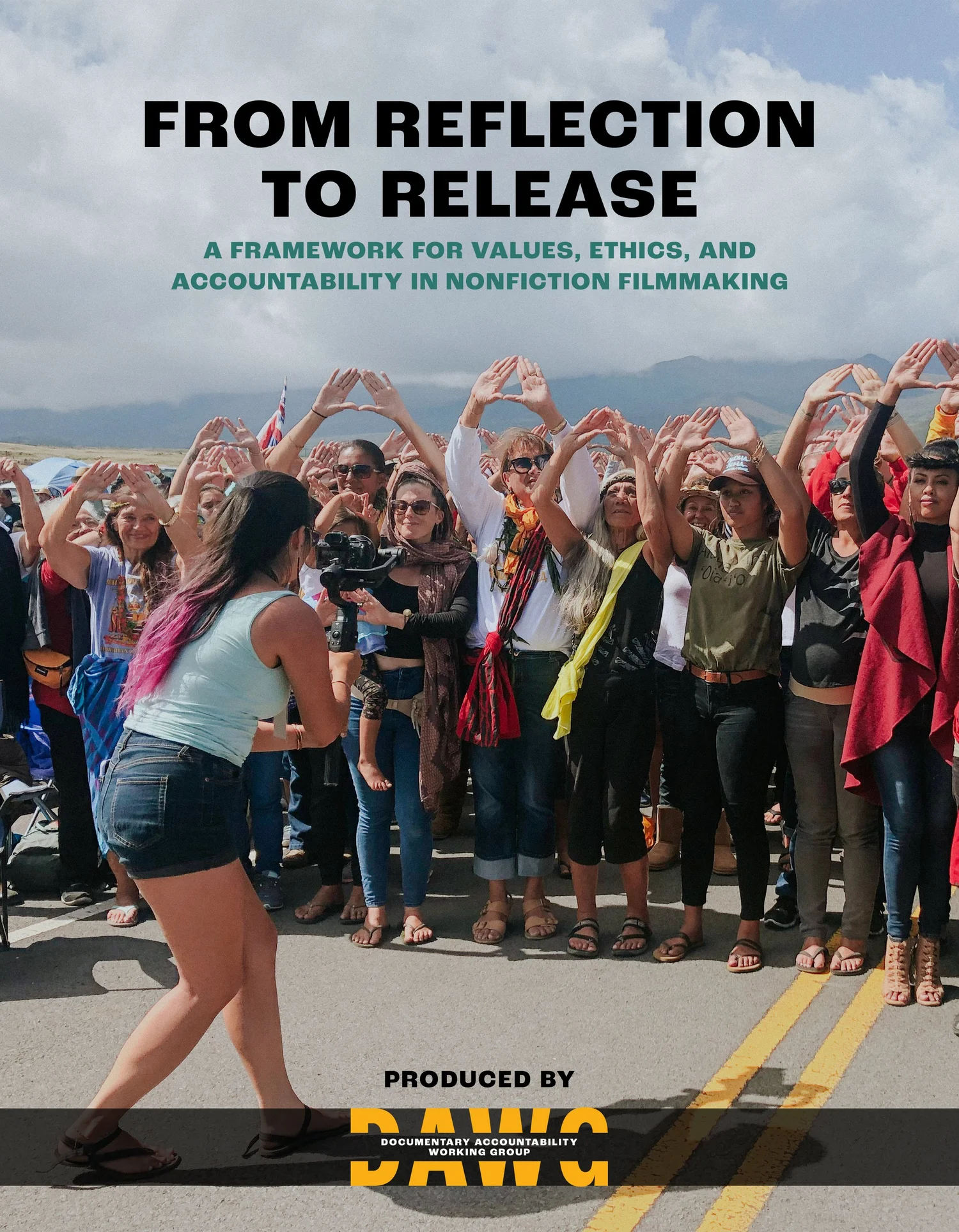Participant Care
People agree to appear onscreen in a documentary for many reasons and their involvement can range from giving an expert interview to allowing cameras into their private lives. When you are making a film with a goal of social impact, participants’ involvement can extend well beyond their minutes on the screen to include active participation in the impact campaign. So, while there are no hard and fast rules that apply in all circumstances, there are ethical considerations that should guide your approach.
Our most basic commitment should be to do our best to avoid harm and make ethical decisions throughout the process that reflect that commitment.
Peace is Loud has created a series of free resources — developed through consultation with film participants — to support you to prioritize the health and well-being of the participants in your film. They have identified eight “key strategies” to employ.
- Transparency regarding the filmmaking process and your plans for the film once it is finished
- Consent that is ongoing and informed through your transparency
- Care that is reflected in your respect, sensitivity, and willingness to adjust to meet participants’ needs
- Support for participants’ emotional well-being
- Intentionality regarding representation
- Accessibility so participants can engage fully
- Potential compensation for participants’ time and other contributions
- Ongoing support
With an eye toward transparency, consider the following questions in your conversations with participants.
- Are they prepared for the attention and commitment of agreeing to be in the film?
- Will they be compensated?
- Are there security concerns? What are you doing to address them?
- What are the implications of their participation for their family, friends, and colleagues?
- Are their expectations for what the film will do for them too low? Too high?
- If a participant is already in a leadership role, how can the film help to propel them and their work further — if that’s what they want?
- If the participant is propelled into a leadership role due to their appearance in your film, what kind of support can you provide to help them to succeed?
- Do they understand your hopes and intentions for the distribution of the film?
All filmmakers have legal obligations to participants to ensure they are appropriately and fairly represented. In circumstances where participants will be made vulnerable, filmmakers may want to protect their identities and locations and provide practical help, even beyond the film’s release. Discuss the risks with participants in detail and make contingency plans with them for any eventualities, in particular should their desired anonymity be breached.
There are, of course, limits to what you can do to safeguard participants against harm. Do your best by empowering them with the truth and, as a team, plan ahead for the positive and negative repercussions.
Related resources
Latin American Forum on Cinema and Social Impact

Docubox: An African Filmmaker's Manifesto

From Reflection to Release: Framework for Values, Ethics, and Accountability in Nonfiction Filmmaking

Centralised Indigeneous Fellowship
